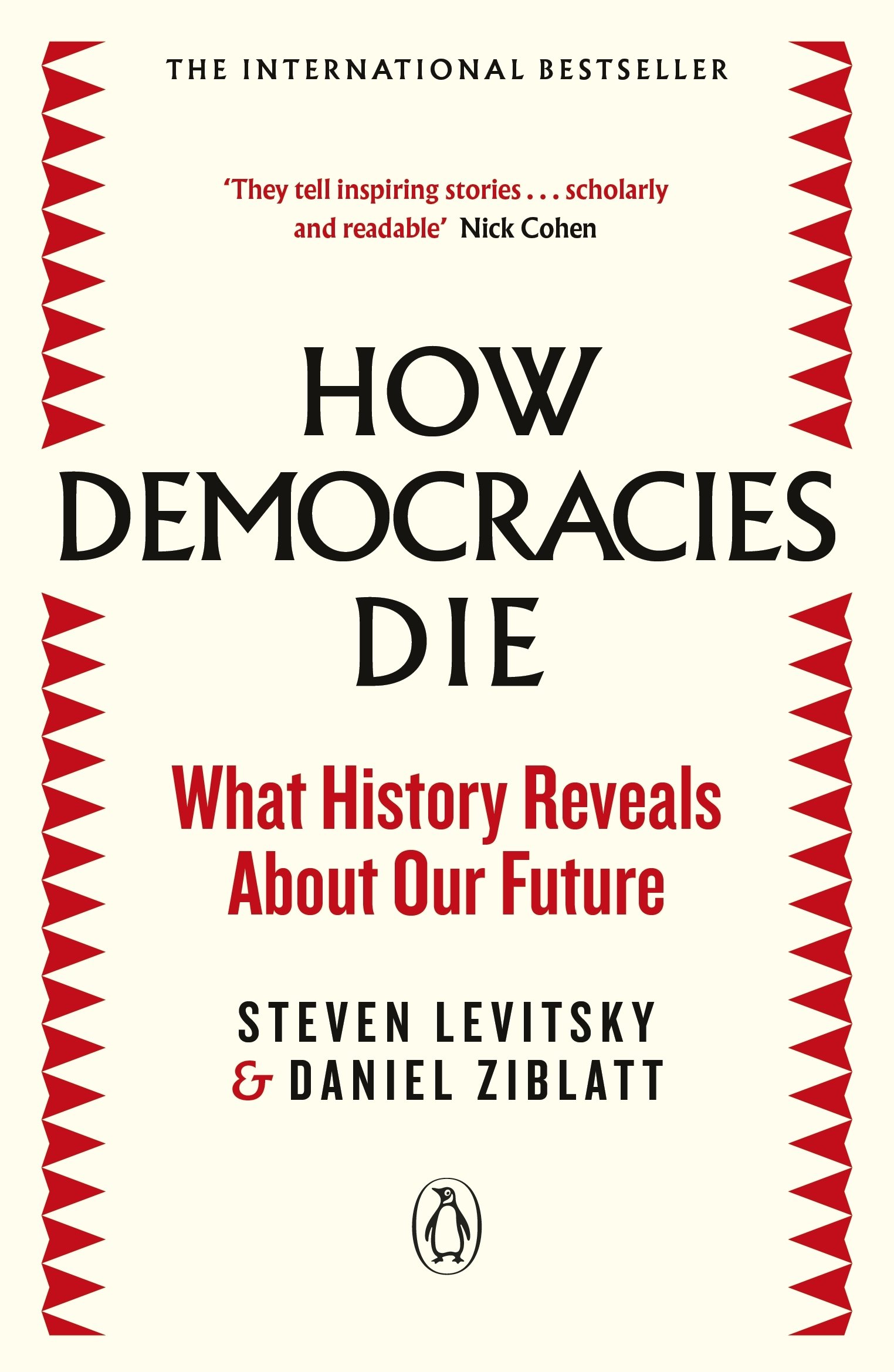How Democracies Die by Steven Levitsky examines the vulnerability of democratic systems to authoritarianism. Levitsky, drawing on historical and contemporary case studies, argues that democracies do not always collapse through violent coups but often erode slowly, through the subversion of democratic norms and institutions. He highlights how leaders can exploit constitutional frameworks, weaken opposition, and concentrate power, leading to a gradual breakdown of democracy. The book warns of the dangers posed by populist movements and authoritarian leaders and provides insight into the factors that contribute to democratic decline. It also offers recommendations for safeguarding democracy in the modern age.
How democracies die
₨1,320₨1,475
How Democracies Die by Steven Levitsky explores the gradual decline of democracies around the world, focusing on the ways authoritarian leaders exploit democratic institutions. Levitsky analyzes the signs of democratic erosion and offers insights into preserving democratic values and systems.
Related products
Offence: The Muslim Case (Manifestos for the 21st Century)
₨999Offence: The Muslim Case by Kamila Shamsie explores the complex intersection of religion, identity, and freedom of expression in the modern world. Shamsie examines the challenges Muslims face today and their place in contemporary global discourse.
₨1,299Change We Can Believe In
₨1,365Change We Can Believe In by Barack Obama outlines his vision for America’s future. Covering topics like healthcare, education, and climate change, Obama offers practical solutions and a hopeful message for progress, inspiring readers to believe in collective action and change.
₨1,645Money,Greed and God
₨999Jay W. Richards debunks myths about capitalism and explores its compatibility with Christian values. Money, Greed, and God advocates ethical capitalism as a force for good, offering a balanced perspective on faith, economics, and societal progress.
₨1,500Blood and Oil: Mohammed bin Salman’s Ruthless Quest for Global Power
₨2,965Blood and Oil by Bradley Hope and Justin Scheck explores the rise of Saudi Arabia’s Crown Prince Mohammed bin Salman. The book delves into his political maneuvers, controversial actions, and ambitions to reshape both Saudi Arabia and the world.
₨3,295Ten Arguments for Deleting Your Social Media Accounts Right Now
₨1,750Jaron Lanier makes a compelling case against social media’s impact on society, highlighting issues like addiction, manipulation, and privacy violations. He offers ten thought-provoking reasons to reconsider our online presence and reclaim autonomy in an increasingly connected world.
₨1,945Reconfiguring the China-Pakistan Economic Corridor
₨899Reconfiguring the China-Pakistan Economic Corridor by Jeremy Garlick analyzes the strategic, economic, and political implications of the CPEC. It explores how the project affects both nations’ regional influence and global economic power, offering a nuanced look at its potential outcomes.
₨1,299The Great Delusion
₨699Mearsheimer’s work critiques American foreign policy and its pursuit of liberal hegemony, arguing that it has destabilized global order and led to conflicts. He explores alternative approaches that prioritize realism, power balance, and the limits of U.S. influence.
₨1,099Terrorism:Theirs and Ours
₨2,099Terrorism: Theirs and Ours by Eqbal Ahmad critically examines the origins and politics of terrorism. It challenges mainstream narratives, exploring the role of global powers, colonial history, and socio-political contexts in perpetuating violence and misunderstanding about terrorism.
₨2,500









